In Memoriam
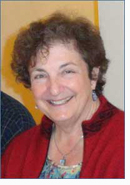 It is with great sadness that we share the news of the passing of Phyllis Katz on January 24th, 2025. She was a dedicated science educator who made great contributions to the Informal Science Education community.
It is with great sadness that we share the news of the passing of Phyllis Katz on January 24th, 2025. She was a dedicated science educator who made great contributions to the Informal Science Education community.
Phyllis Katz began her career as a teacher in New York City and started the afterschool science program, Hands-on-Science Outreach (HSO), in 1980. Under her leadership, HSO grew into a national and international program serving tens of thousands of youths. Phyllis' interest in research grew as the afterschool programs expanded. She began to focus on how questions about outcomes could be answered without the methods of school science testing. She was inspired by the use of visual methods, including drawings and photography, as data to support and research the science teaching identity of teacher candidates and the scientist identity development within families.
Phyllis was an active member of the informal science community in the National Science Teaching Association (NSTA) and the National Association for Research in Science Teaching (NARST), where she advocated for the recognition of the work of informal science educators. In the NSTA, she was appointed Chair of the Informal Science Advisory Board from 1995-1998. She led the team that wrote the first NSTA Position Statement on Informal Science Education and in 1999 received NSTA's Informal Science Educator award. At NARST, she was an active participant in the informal science education strand since its inception.
Phyllis served on the Advisory Board for the Magic School Bus TV series and worked with Children's Television Workshop on the development of an afterschool component for one of their TV math series.
She received her PhD in Science Education from the University of Maryland in 2002 and authored numerous books and articles on research and practice in informal science education.
Her obituary can be found here.
10-24-2024
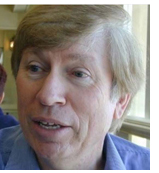 It is with great sadness that we share the news that Barry Fraser, John Curtin Distinguished Professor, passed away peacefully in the company of his family on Thursday, October 17, 2024.
It is with great sadness that we share the news that Barry Fraser, John Curtin Distinguished Professor, passed away peacefully in the company of his family on Thursday, October 17, 2024.
Professor Fraser’s contributions to the field of education, in particular to science education, are immeasurable, and he leaves behind an extraordinary legacy. His pioneering research in learning environments has had a profound impact both in Australia and globally. Throughout his career, Barry was known for his dedication to improving educational practices and outcomes. His work on classroom environments and educational measurement has shaped countless studies and influenced educators worldwide.
Professor Fraser began his academic career at Macquarie University in New South Wales after completing his doctoral thesis at Monash University in Victoria. In 1982, he moved to the named Curtin University of Technology, in Western Australia. There Barry became one of its first professors in science education, and made an indelible mark as a leader, mentor, and scholar. The quality, quantity, and importance of his publications spanned hundreds of articles and books. With over 52,000 citations, from 500 plus publications, Barry leaves an impressive mark on the global science education community.
Barry was President of NARST (1995-1997), the initiator of the Special Interest Group, Learning Environments, at the American Educational Research Association, and the initiator of Learning Environments Research: An International Journal for which, with Jill Aldridge, he was co-editor. In 2003, Barry received the Distinguished Contributions to Research Award from the National Association for Science Teaching (NARST), only the second Australian to do so.
Barry was the leader in the success of SMEC (Science and Mathematics Education Centre) that delivered opportunities for academics, graduate students and school teachers to discover, explore and share valuable innovations in teaching and learning. Barry’s dedication to fostering the next generation of scholars was evident in his mentoring of students and colleagues alike. His diligent work took SMEC and Curtin University to the international scene of science education, both by attracting notable international scholars to spend study leave at SMEC and encouraging and supporting SMEC staff and students to travel to international forums, thus making a huge contribution to the development of their academic careers.
Barry was always enthusiastic, supportive and incredibly generous in giving his time to the well-being of his many colleagues. Barry leaves behind a remarkable legacy to the academic community. His passing is indeed a great loss, not only to his family and colleagues, but also for the broader science education community.
10-24-2024
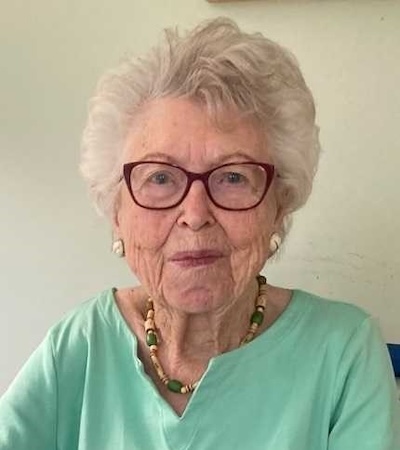 Former NARST President Ann Howe, 99, of Raleigh died peacefully on August 14, 2024, after a brief illness, surrounded by family. Ann Elizabeth Clark was born in Richmond on October 18, 1924, to the late William Baker Clark and Louise Graham Clark.
Former NARST President Ann Howe, 99, of Raleigh died peacefully on August 14, 2024, after a brief illness, surrounded by family. Ann Elizabeth Clark was born in Richmond on October 18, 1924, to the late William Baker Clark and Louise Graham Clark.
Ann grew up on the family farm in Buckingham County, Virginia. She entered college at age 16 and graduated from Westhampton College, University of Richmond, Phi Beta Kappa with a bachelor’s degree in chemistry. She also earned a master’s degree in organic chemistry at the University of North Carolina, Chapel Hill. She met Charles Howe at UNC after he returned from service in WWII and they were married in 1947. Ann was an instructor in chemistry at the University of Puerto Rico - Mayaguez, worked as a research assistant at UNC, and then spent a decade at home with her children.
She was an elementary science teacher at the Lab School at the University of Chicago while her husband was a seminary student. Ann then received a Ph.D. in science education from the University of Texas at Austin in 1970. She was a Professor of Science Education at Syracuse University, the head of the Department of Math and Science Education at North Carolina State University, and the head of the Department of Curriculum and Instruction at the University of Maryland. She was the first woman to hold a faculty position in her department at both Syracuse and N.C. State. Her professional accomplishments are too numerous to detail here but included leadership roles in professional organizations, including President of the National Association for Research in Science Teaching (1983-84), a Senior Fulbright Scholar in Chile, editorial roles with professional journals, and the author of numerous journal articles and two books. In retirement, Ann became a painter and was a member of Cary Gallery of Artists.
She was a longtime member of the Unitarian Universalist Fellowship of Raleigh where she served in various leadership roles. A person of great energy, curiosity and optimism, Ann balanced her professional achievements with a full family life, a love of travel, nature and gardening, and enjoying her many friends.
She was predeceased by her husband, Charles, and her brother, William B. Clark Jr.
She is survived by daughter Judy Howe (Robert Harangozo) of Yonkers NY, daughter Margie Chenery of Raleigh, and son David Howe of Albany NY; grandchildren Patricia Chenery, Sally Howe, Nora Howe, and Caroline Harangozo; her sister, Martha Bell; her sister-in-law, Jean Clark; and several nieces and nephews.
8-22-2024
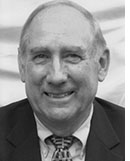 It is with sadness, yet deep gratitude for his many contributions to science education, that we acknowledge the passing of an exemplary member of our professional community, Roger G. Olstad, former NARST President and former President of the Association for Science Teacher Education (ASTE). As Professor of science education at the University of Washington, he was a tireless and deeply committed leader of both formal and informal science education at the local, state, and national levels. He was deeply committed to advancing research and scholarship in science education, and through his association with the Pacific Science Center, he fostered community engagement through informal learning experiences. A Fellow of the American Association for the Advancement of Science and active in many initiatives of the National Science Teachers Association, Roger was continuously engaged in promoting science teaching and learning at all levels. Despite his broad involvement in science education communities, though, he always had time for his students, often engaging them in his many activities and “bringing them along” in the profession rather than simply “advising” them.
It is with sadness, yet deep gratitude for his many contributions to science education, that we acknowledge the passing of an exemplary member of our professional community, Roger G. Olstad, former NARST President and former President of the Association for Science Teacher Education (ASTE). As Professor of science education at the University of Washington, he was a tireless and deeply committed leader of both formal and informal science education at the local, state, and national levels. He was deeply committed to advancing research and scholarship in science education, and through his association with the Pacific Science Center, he fostered community engagement through informal learning experiences. A Fellow of the American Association for the Advancement of Science and active in many initiatives of the National Science Teachers Association, Roger was continuously engaged in promoting science teaching and learning at all levels. Despite his broad involvement in science education communities, though, he always had time for his students, often engaging them in his many activities and “bringing them along” in the profession rather than simply “advising” them.
Roger was one of those rare individuals who was both light-hearted, loving to crack a joke in an instant, and very principled, ready to defend his own position or that of a colleague in the next instant. He believed in honoring diversity, listening to alternative opinions, and standing up for what he thought to be honorable and true. Easy going in the moment, but steadfast when principles were at stake, he was an honorable colleague who lived his beliefs and convictions. Some leaders take charge and tell others what to do, some give people tasks and expect them to figure out what to do, and others, like Roger, would engage you in the conversation and include you in a team that would collaborate in analyzing an issue and choosing a shared approach forward. Roger was a master of leading through engagement, inclusion, and distributed decision making. Everyone’s voice and ideas were valued, considered, and respected.
In addition to the traditional practice of co-authoring research publications and co-teaching courses with doctoral students, Roger would engage his graduate students in “off campus” professional activities. Here are two examples: When the teaching of evolution was an issue of local concern, he lead a team of teachers, graduate students, and faculty members to offer presentations at hearings in the Washington statehouse. Each year, he would organize an environmental education weekend at a camp where graduate students organized and led workshops in environmental education activities for students preparing to be elementary and middle school teachers. In all these activities, he was the “choreographer” who assigned roles, facilitated planning, and then stepped back to allow direct experience be the instructor.
Roger was born in 1934 in Minneapolis, and he earned his Bachelor’s Degree, Master’s Degree, and Doctorate at the University of Minnesota. After graduation he was appointed to the faculty of the University of Washington in Seattle where he remained until retirement. He served as the Associate Dean for Graduate Studies in the College of Education, and he served on the Board of the Pacific Science Center, a regional center for informal science education. Regionally, he was honored as the first Boeing Distinguished Professor of Education.
On October 11, 2023, Roger passed peacefully in his sleep from complications associated with cardiovascular disease. He is fondly remembered by thousands of former students who became professors, science teachers, science education researchers, teacher leaders, school district science supervisors, administrators of science museums and institutes, and informal science educators.
12-14-2023
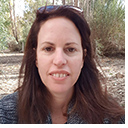 It is with a heavy heart that we report the sad news that Yasmin Zohar died tragically last week in the conflict raging in the Middle East. Yasmin, a doctoral student of NARST member Dana Vedder-Weiss, attended Ben Gurion University of the Negev. Yasmin’s husband, father and two daughters were also killed in the unrest. We have many colleagues who are grappling with grief and uncertainty brought on by this conflict. Please reach out to them with measures of comfort and support.
It is with a heavy heart that we report the sad news that Yasmin Zohar died tragically last week in the conflict raging in the Middle East. Yasmin, a doctoral student of NARST member Dana Vedder-Weiss, attended Ben Gurion University of the Negev. Yasmin’s husband, father and two daughters were also killed in the unrest. We have many colleagues who are grappling with grief and uncertainty brought on by this conflict. Please reach out to them with measures of comfort and support.
10-17-2023
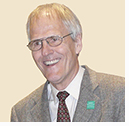 With a heavy heart we share the sad news that Dr. Reinders Duit, a long-term NARST member, former NARST Director and recipient of the NARST Distinguished Contribution Award, has passed away on February 10. Reinders Duit was Professor of Physics Education at the Leibniz-Institute of Science and Mathematics Education (IPN) in Kiel, Germany. He was internationally known for his research and scholarship on students’ conceptions of a broad range of core physics and science concepts; and he was a co-developer and active promoter of the Model of Educational Reconstruction that enjoys enormous popularity from curriculum developers across the world.
With a heavy heart we share the sad news that Dr. Reinders Duit, a long-term NARST member, former NARST Director and recipient of the NARST Distinguished Contribution Award, has passed away on February 10. Reinders Duit was Professor of Physics Education at the Leibniz-Institute of Science and Mathematics Education (IPN) in Kiel, Germany. He was internationally known for his research and scholarship on students’ conceptions of a broad range of core physics and science concepts; and he was a co-developer and active promoter of the Model of Educational Reconstruction that enjoys enormous popularity from curriculum developers across the world.
Over his long and remarkable career, Reinders not only contributed a large body of research, but also had a substantial impact on the teaching and learning of physics and, more generally, science. He developed an outstanding reputation as a research scholar, teacher educator and supervisor to many students nationally and internationally, resulting in many awards. He had encyclopedic knowledge of the science education literature, was involved in many collaborative research projects with colleagues from a wide range of countries and regions across the world. Some of these collaborations developed into close professional relationships and in some cases life-time friendships. Reinders also supported a large number of young scholars, encouraging them to pursue a career in physics or science education and supporting them in their work; some of these scholars hold prestigious positions today.
Above all, however, Reinders was a modest person, had a friendly disposition and pleasant demeanor, was a thoughtful listener, always willing to engage meaningfully in debates and discussion with colleagues and graduate students. He had a gentle manner in offering guidance that was reciprocated in how others interacted with him. Not least, he had a fine sense of humor, that made working with him a remarkably enjoyable experience.
Read the complete obituary by Knut Neumann and David Treagust
2-21-2023
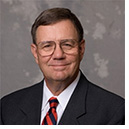 It is with a heavy heart that we write to you with the sad news of the passing of NARST past president John Staver. John passed on April 24, 2022, following many well-fought years against Alzheimer’s disease. John is survived by his wife of 56 years, Patricia, his two daughters, and his four grandchildren.
It is with a heavy heart that we write to you with the sad news of the passing of NARST past president John Staver. John passed on April 24, 2022, following many well-fought years against Alzheimer’s disease. John is survived by his wife of 56 years, Patricia, his two daughters, and his four grandchildren.
John graduated from Indiana University with his undergraduate degree in 1968. He began his career as a high school science teacher and baseball coach in Indianapolis. John earned his Master of Science degree from Purdue University in 1973 and headed back to Indiana University to earn his Doctorate of Education in 1978.
A lifelong educator, John was a professor at several universities. He spent most of his career teaching at Kansas State University and later at Purdue University where he retired as Professor Emeritus. Along with his substantial research and publications, John found great joy and pride in preparing his students to be effective and inspirational teachers. John served as Executive Director of NARST from 1990-1995 and as NARST President in 2005.
The science education community has lost a beloved colleague who provided exceptional leadership to NARST.
His obituary may be found here.
4-28-2022
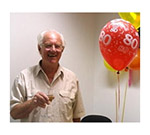 We are saddened to share that Emeritus Professor Peter Fensham passed away recently. Peter was founding Professor of Science Education at Monash University, the first such appointment in Australia. He was also the founder of the Australasian Science Education Research Association (ASERA) in 1971 and first national President of ASTA and of AAEE. He served as an Adviser of the TIMSS project in the 1990s and of the OECD's PISA (Science) project in the 2000s. He has published nine books and many research articles. His international contacts have included Visiting professorships in England, Sweden, Canada, Japan and Brazil. (Monash University website).
We are saddened to share that Emeritus Professor Peter Fensham passed away recently. Peter was founding Professor of Science Education at Monash University, the first such appointment in Australia. He was also the founder of the Australasian Science Education Research Association (ASERA) in 1971 and first national President of ASTA and of AAEE. He served as an Adviser of the TIMSS project in the 1990s and of the OECD's PISA (Science) project in the 2000s. He has published nine books and many research articles. His international contacts have included Visiting professorships in England, Sweden, Canada, Japan and Brazil. (Monash University website).
An article about Peter was written by Dick Gunstone for a Special Issue of Cultural Studies of Science Education. It does a wonderful job of sharing wonderful memories of Peter and the work that he did. He will be sorely missed.
Special issue article: Peter Fensham-head, heart and hands (on) in the service of science education and social equity and justice
View a tribute to Peter from Monash University.
9-10-2021
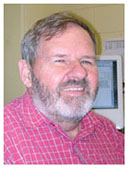 We report the very sad news that Allan Harrison passed away on Saturday 17 April 2021. Since 2004, Allan had suffered from Parkinson’s disease which curtailed his very promising academic career when he was on the cusp of being considered for a Professorship in Science Education.
We report the very sad news that Allan Harrison passed away on Saturday 17 April 2021. Since 2004, Allan had suffered from Parkinson’s disease which curtailed his very promising academic career when he was on the cusp of being considered for a Professorship in Science Education.
After teaching science in Years 8-12 for 23 years in a range of schools in Western Australia, including as head of science, Allan turned his interests to further his own education, enrolling in the Science and Mathematics Education Centre at Curtin University in a Master of Science (Science Education) degree which he completed in 1992 followed by a doctorate in 1997. Allan’s research interests encompassed conceptual change and the role of models and analogies. Allan’s doctorate was supervised by David Treagust at SMEC during a period of other outstanding research students including Grady Venville, Sue Stocklmayer, Rod Thiele and Richard Coll. Upon graduation, Allan accepted a position as Lecturer in Science Education at Central Queensland University in Rockhampton, Queensland where he was duly promoted to Senior Lecturer and Associate Professor. There he taught a range of classes and was a successful mentor and advisor to several masters and doctoral students. Starting with publications from his masters and doctoral theses, Allan published widely with many citations.
Allan's record of high academic accomplishments was recognised by the National Association for Research in Science Teaching (NARST) – the premier international organisation for science education research. This recognition includes the 2000 JRST Award (for best published paper in 1999 in the Journal for Research in Science Teaching), the 2001 NARST Award (for the best paper presented at the NARST 2001 annual meeting) and the NARST Early Career Research Award in 2002. In Treagust’s 40+ years as an active member and former President of NARST he does not recall any other colleague who had received this level of academic recognition with the three different awards – and in consecutive years. Allan was a member of the NARST Academic Board – only the fourth Australian to be elected. Parallel with this international recognition has been his success as a recipient of two three-year grants from the Australian Research Council and membership of the editorial boards of the Journal for Research in Science Teaching and the International Journal of Science Education.
Allan was well-known to his colleagues and students for being articulate, well-organised, exceptionally well-read in the area of his research on aspects of student learning and related areas and an excellent collaborator. With a caring and amiable personality and being a conscientious worker who set himself very high standards, Allan was a pleasure to work with. We have missed him in our science education circles, as have many others, and we also wonder what might have been the fullness of his career if not for his illness.
Allan is survived by his wife Beth, and three children Danielle, Fiona and Nathaniel.
David F Treagust, Curtin University
Grady Venville, Australian National University
5-4-2021
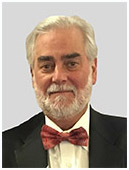 It is with a heavy heart that we write to you with the sad news of the passing of NARST past president Norman G. Lederman. Norm passed on the morning of February 26, 2021 after a brief and unexpected illness. As always, his wife and partner, Judy Lederman was right by his side, as well as his stepchildren Abigail Bernier and Ben Sweeney. He and Judy had recently relocated from Chicago, Illinois to Rhode Island to be closer to family and continue their work in science education. Norm was 69. He embodied in his career the often-sought goal in our community of bridging the worlds of science teachers, science teacher educators, and science education researchers.
It is with a heavy heart that we write to you with the sad news of the passing of NARST past president Norman G. Lederman. Norm passed on the morning of February 26, 2021 after a brief and unexpected illness. As always, his wife and partner, Judy Lederman was right by his side, as well as his stepchildren Abigail Bernier and Ben Sweeney. He and Judy had recently relocated from Chicago, Illinois to Rhode Island to be closer to family and continue their work in science education. Norm was 69. He embodied in his career the often-sought goal in our community of bridging the worlds of science teachers, science teacher educators, and science education researchers.
Over the course of 47 years, Norm led a distinguished and impactful career as a science teacher, science teacher educator, and science education researcher and leader. Shortly after earning his B.S. and M.S. degrees in biology from Bradley University (1971) and New York University (1973), respectively, Norm taught biology for a decade to high school and community college students in Illinois and New York, as well as college students at Syracuse University. During those years, he earned an M.S. in secondary education from Bradley (1977) and Ph.D. in science education from Syracuse University (1983), studying under Dr. Marvin Druger. Norm held assistant professor positions in science education and teacher education at Syracuse University, State University of New York–Albany, and Oregon State University (OSU). At OSU, he was promoted to associate and then full professor. In 2001, he chaired OSU’s Department of Mathematics and Science Education, and left that year to found and chair IIT’s new Mathematics and Science Education Department. In 2011, Norm was named an IIT Distinguished Professor. By the time of his retirement in 2020, his IIT department had become a local, national, and international force in discipline-based mathematics and science education. Along the way, Norm was a Visiting Research Professor at National Changhua University of Education, Taiwan; Fulbright Scholar at the University of Pretoria, South Africa; Honorary Professor at the Hong Kong Institute of Education; Guest Professor at Beijing Normal University, China; and Distinguished Foreign Expert at the State Administration of Foreign Affairs, China. At the time of his passing, Norm was a “virtual” visiting professor at the University of Science and Technology of China.
Norm taught and mentored hundreds upon hundreds of science students, preservice and inservice science teachers, and graduate students in science education in the United States and across the globe. He was major professor to 51 doctoral students, mentoring them into successful careers of their own. Norm was an amazing mentor and treated his doctoral students as family, and was considered as family to all his students. For his work, Norm received the Illinois Outstanding Biology Teacher Award from the National Association of Biology Teachers (1979), as well as the Presidential Citation for Distinguished Service (1986) and Outstanding Mentor Award (1998) from the Association for the Education of Teachers in Science (AETS; now ASTE). Additionally, Norm provided significant service and leadership to major national and international organizations across science teaching, science teacher education, and science education research. He was elected president of AETS (1994), member of the board of directors (1994–1998) and director of teacher education (1996–1998) of the National Science Teachers Association (NSTA), and NARST executive board of directors (1997–2000) and then NARST president (2002). He also served as the North American representative to the International Council of Associations for Science Education (2004–2010). For this extensive service and leadership, NSTA recognized Norm in 2017 with the Distinguished Service to Science Education Award.
Norm was an intellectual force and prolific researcher. He studied preservice and inservice science teachers’ knowledge structures of subject matter and pedagogy, pedagogical content knowledge, and teachers’ concerns and beliefs. Norm is best known for his research on teaching and learning about nature of science (NOS), a robust domain of research in science education that is inextricably linked with his name. Norm’s 1992 review of the research literature on NOS published in the Journal of Research in Science Teaching (JRST) continues to be one of the top five most cited papers in our field. This paper has shaped research on NOS in science education for the past 30 years. Over his distinguished career, Norm published more than 200 articles in professional refereed journals and 46 book chapters. He authored or edited 11 books, including an elementary science teaching methods textbook. Norm co-edited with Sandra Abell the Handbook of Research on Science Education: Volume I (2007) and Volume II (2014), and was editing Volume III of the handbook, with Dana Zeidler and Judy Lederman, at the time of his passing. Norm has given more than 1000 presentations, invited talks, and keynote addresses at regional, national and international professional conferences and meetings, as well as universities around the globe. His work has been heavily cited with 38,000+ citations on Google Scholar (h-index = 70; i10-index = 153) and 6,400+ citations on the Web of Science® (h-index = 33; i-10 index = 45).
Norm’s research leadership extended to shaping the field through extensive engagement in the editorship of professional journals. He served as co-editor of the School Science and Mathematics Journal, and Journal of Science Teacher Education (JSTE), as well as associate editor for JRST, JSTE, and International Journal of Science Education, among many other journals. Norm served on the editorial boards of some 15 science education journals across the globe.
For his scholarship, Norm was elected Fellow of the American Association for the Advancement of Science (2009) and American Education Research Association (2010). He was recognized with an honorary doctorate from the University of Stockholm, Sweden (2008). In 2011 NARST honored him with the Distinguished Contributions to Science Education through Research Award for his outstanding and continuing contributions, notable leadership, and substantial impact in the area of science education.
The science education community worldwide lost a colleague, relentless advocate, and visionary leader with exceptional passion and dedication to the causes of science education. For those of us who knew Norm as an outstanding teacher, dedicated advisor, supportive mentor, and lifelong friend, our loss is even graver. We will miss him sorely.
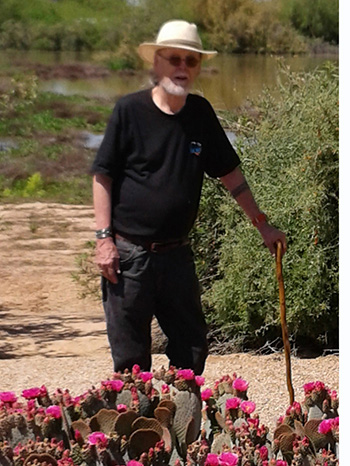 Dr. Michael Dee Piburn died June 22, 2020 after a brief illness. He was a professor of science education in the Mary Lou Fulton College of Education from 1989 until 2004, after which he was a program officer at the National Science Foundation. While at Arizona State University, Dr. Piburn served as Associate Dean for Research and Co-editor of the Journal in Research in Science Teaching, which was housed in the college. Dr. Piburn received his Ph.D. in geology from Princeton University in 1967, and his research at ASU on visualization in the Hidden Earth Project and on geoscience and science teacher education was founded on his science background. His most well-known work was the Reformed Teaching Observation Protocol (RTOP) to measure reformed practices in science teaching. In 2008, he was a Fulbright Fellow at the Technion, Israel, where he researched spatial visualization in science education. Earlier in his career, Dr. Piburn explored moral reasoning and propositional logic in the context of science education. He leaves behind his wife, Dr. Dale Baker, Emerita in the MLFC of Education, a son, daughter, and two grandchildren. There will be no service.
Dr. Michael Dee Piburn died June 22, 2020 after a brief illness. He was a professor of science education in the Mary Lou Fulton College of Education from 1989 until 2004, after which he was a program officer at the National Science Foundation. While at Arizona State University, Dr. Piburn served as Associate Dean for Research and Co-editor of the Journal in Research in Science Teaching, which was housed in the college. Dr. Piburn received his Ph.D. in geology from Princeton University in 1967, and his research at ASU on visualization in the Hidden Earth Project and on geoscience and science teacher education was founded on his science background. His most well-known work was the Reformed Teaching Observation Protocol (RTOP) to measure reformed practices in science teaching. In 2008, he was a Fulbright Fellow at the Technion, Israel, where he researched spatial visualization in science education. Earlier in his career, Dr. Piburn explored moral reasoning and propositional logic in the context of science education. He leaves behind his wife, Dr. Dale Baker, Emerita in the MLFC of Education, a son, daughter, and two grandchildren. There will be no service.
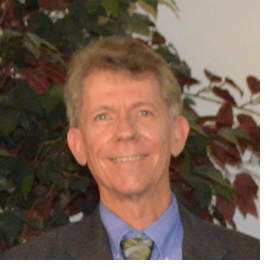 We are saddened to announce that Dr. Randy McGinnis has passed away after an illness.
We are saddened to announce that Dr. Randy McGinnis has passed away after an illness.
Randy is known for his commitment to diversity, which is exemplified by his collaboration with Historically Black Institutions (HBI’s), and his recent research exploring the recruitment, preparation and retention of upper elementary/middle school science teachers, and in particular those from traditionally underrepresented groups. Randy served as editor-in chief of theJournal of Research in Science Teaching (JRST) and is a past president of NARST. Randy was a fun person to be with. We often talked about his kids (Karin, Annika and Elise) and his wife Greta that he loved so much and was so proud of.
Read the full announcement (Dec 17, 2019) here.
